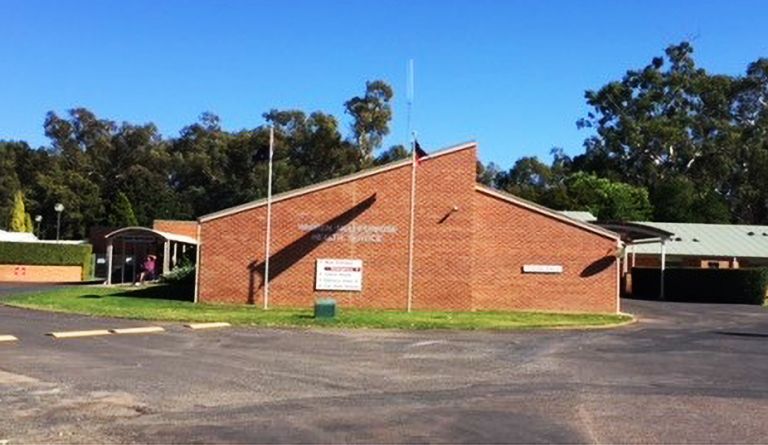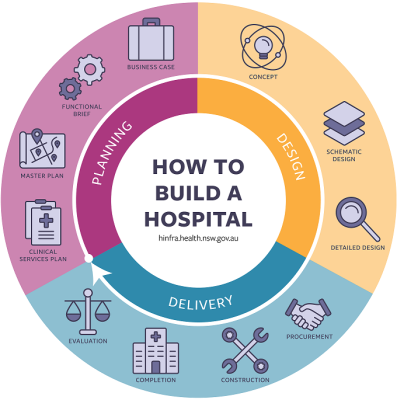Request accessible format of this publication.
Warren Multipurpose Service Clinical Services Plan 2020-2030

About Warren Multipurpose Service
The Warren Clinical Service Plan (the Plan) articulates the role of Warren Multipurpose Service (MPS) in the provision of health services over the next 10 years.
Warren MPS is a rural facility within Western NSW Local Health District (LHD). It provides a range of inpatient, outpatient and community clinical services to Warren and surrounding communities, and works as part of a network of health services and hospitals within the region.
The Plan has been developed for Warren MPS. It describes the key directions for Warren MPS to support healthier lives for people living in Warren and local surrounding communities, and deliver reliable and contemporary health care both inside and outside of the MPS setting.
Why we need a plan

Warren MPS is the primary provider of hospital services to the people of Warren and surrounding communities. The Warren population is predicted to decline over the next 10 years, and like other parts of Australia the population is ageing. There are higher rates of chronic disease, and inequalities in the health and wellbeing between some groups in the community which are important challenges for the future.
The Plan has been developed to respond to these challenges by considering the health needs of the population, services to meet these needs and the infrastructure requirements for Warren into the future.
A CSP is the first step for any significant facility refurbishment or redevelopment.
NSW Health Infrastructure's - How to Build a Hospital (pictured) outlines the steps in the process.
Warren Health Service catchment
The Warren MPS provides services to the local community, across the Warren Local Government Area (LGA). The total estimated population of the Warren LGA is approximately 2,797 persons. According to the NSW Department of Planning, Industry and Environment (2019), it is anticipated that in 2031, the population of the Warren MPS catchment area will decrease by 9% to 2,540 persons.
Population projections suggest continued growth in the proportion of the population aged 70 years and over. This is consistent with the ageing population across NSW.
Warren catchment: Health needs
People living in Warren LGA were more likely to experience a chronic condition than the rest of NSW. The most common chronic conditions seen are diabetes, vascular disease, respiratory disease, and mental health.
Warren residents experience high rates of cardiovascular disease, diabetes, cancer incidence, and mothers smoking in pregnancy.
Behavioural and modifiable risk factors include smoking, alcohol consumption, inadequate fruit consumption and inadequate physical exercise. These behavioural risk factors have been associated with the development of chronic disease. Health related behaviours for the Warren population (compared with the rest of NSW) include:
- Smoking Rates (smoking in the general population and smoking in pregnancy) are greater than the rest of NSW.
- Higher rates of alcohol consumption (>2 alcoholic drinks per day).
- Higher proportion of the population who are obese.
- Higher proportion of people who have one or more behavioural risk factors.
Consultation
Consultation has informed the development of the Plan, and has included:
- Engagement with Warren Health Advisory Council.
- Consultation workshops with community members.
- Community survey.
- Local and LHD staff consultation.
The key health needs and issues identified by the community included:
Aged Care services including services for people living with dementia:
support for people to age in their own homes
ability to transition to residential aged care in Warren and receive dementia specific care locally.
- Transport challenges to access specialist appointments outside of Warren.
Access to renal services including dialysis and pre-dialysis care.
Access to mental health drug and alcohol services.
Access to services to promote child health and development.
Challenges in navigating between multiple service providers within the local community.
Access to GP services after hours.
Current services
Warren MPS provides residential aged care, acute and subacute care include palliative and respite care, and a range of primary and community health services.
Drivers for change
There are a number of factors driving change in health care for the Warren community. These include:
- Age and function of the current infrastructure of the health service.
- The changing profile of the population, with an increase in the number of people aged over 70.
- The prevalence of chronic diseases and risky health related behaviours.
- Workforce.
- Changing models of service delivery and new and emerging evidence, including:
- virtual health
- alternatives to in-hospital care
- enhanced and integrated primary care
- shorter length of stay and proactive community following.
- Geography.
- Community expectation.
By reviewing the historical activity for Warren MPS, understanding the health needs for the Warren region and projected changes in the population, and gathering feedback from the community on priority health needs, we develop the Clinical Services Plan.
The way forward
The Plan describes a vision for Warren MPS over the next 10 years, in delivering urgent care, inpatient acute and subacute care, residential aged care, and community based care.
The Plan responds to the needs of the community, and outlines the opportunity for an integrated and digitally connected health and wellbeing approach to healthcare, alongside contemporary acute care. The Plan includes infrastructure needs to future proof Warren MPS including an increase in residential aged care beds, and improve access to care using a network of services in the region.
The key directions for Warren MPS include:
Improved health and wellbeing of rural people
Improved management of people with chronic conditions and complex health needs through an emphasis on prevention, health promotion and risk reduction, early intervention, rehabilitation and self-management strategies.
An increased focus on the ‘first 2,000 days’ in partnership with local GPs, local schools and other health and health related services.
Comprehensive screening at all health care access points for risk factors including behaviours contributing to poorer health and family violence and referral to appropriate services.
Meaningful gains in Aboriginal Health
Work in collaboration with key stakeholders to close the Aboriginal health gap. This will include strong advocacy for flexible services that facilitate access, participation and an appreciation and acknowledgment that closing the gap requires innovation, flexibility and a different way of doing business.
Improved service provision to Aboriginal people through ongoing consultation and culturally appropriate service delivery models.
Recruit more Aboriginal people to front line positions.
Ensuring that physical infrastructure enhancements will consider features that promote cultural safety and respect and reflect cultural needs and practices.
World class rural health care
- Improved care coordination and integration with service partners including other District services, tertiary services, general practitioners and other non-government providers of health and health related services. This will also increase the sustainability of services and reduce duplication while maintaining and increasing the level of service to the community.
- Further develop population-based primary health models of care.
- Implement systems and programs that prevent functional decline, strengthening of care coordination, team care planning, and increased access to specialist geriatric consultation and liaison services.
One health service across many places
Improved care coordination and integration with service partners including other District services, tertiary services, general practitioners and other non-government providers of health and health related services.
In partnership with the District Renal Clinical Stream explore ways to increase locally based support and care for people with renal disease.
Explore the opportunities to use virtual care to provide greater access for inpatient and outpatient services to specialist (and /including allied health) consultation liaison services.
Develop collaborative partnerships with aged care providers, non-government agencies, primary health care providers and general practitioners to support people in their own home.
Next steps and further information
The Warren MPS Clinical Services Plan is now with the Ministry of Health for final review and endorsement.